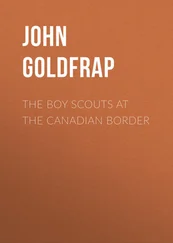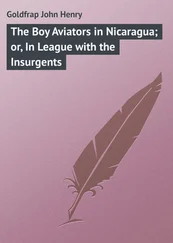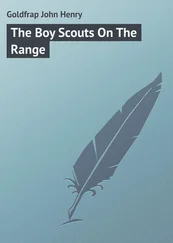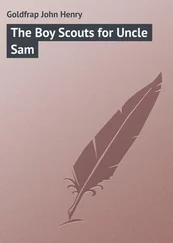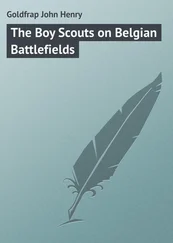John Blaine - The Boy Scouts In Russia
Здесь есть возможность читать онлайн «John Blaine - The Boy Scouts In Russia» весь текст электронной книги совершенно бесплатно (целиком полную версию без сокращений). В некоторых случаях можно слушать аудио, скачать через торрент в формате fb2 и присутствует краткое содержание. Жанр: Прочая документальная литература, на русском языке. Описание произведения, (предисловие) а так же отзывы посетителей доступны на портале библиотеки ЛибКат.
- Название:The Boy Scouts In Russia
- Автор:
- Жанр:
- Год:неизвестен
- ISBN:нет данных
- Рейтинг книги:3 / 5. Голосов: 1
-
Избранное:Добавить в избранное
- Отзывы:
-
Ваша оценка:
- 60
- 1
- 2
- 3
- 4
- 5
The Boy Scouts In Russia: краткое содержание, описание и аннотация
Предлагаем к чтению аннотацию, описание, краткое содержание или предисловие (зависит от того, что написал сам автор книги «The Boy Scouts In Russia»). Если вы не нашли необходимую информацию о книге — напишите в комментариях, мы постараемся отыскать её.
The Boy Scouts In Russia — читать онлайн бесплатно полную книгу (весь текст) целиком
Ниже представлен текст книги, разбитый по страницам. Система сохранения места последней прочитанной страницы, позволяет с удобством читать онлайн бесплатно книгу «The Boy Scouts In Russia», без необходимости каждый раз заново искать на чём Вы остановились. Поставьте закладку, и сможете в любой момент перейти на страницу, на которой закончили чтение.
Интервал:
Закладка:
They followed him as he started. As soon as he was in the open road again, a new idea came to him. Why not try the great house on the hill? There certainly someone would know the difference between an American and an Englishman. He was very tired. He knew that, even if he went on, he would have to stop at some village sooner or later. And if he was suspected here, he would be at the next place.
And so, trying to ignore the little crowd that was following him, he turned off and began climbing toward the mansion above the village.
It was like a signal. From behind him there rose a dull murmur. A lad not much older than himself raced up and stood threateningly in his path.
"If you are an American and honest, why are you going there?" asked this boy, a peasant, and rather stupid in his appearance.
"None of your business!" said Fred, aroused. He didn't think that the advice of his friend Lieutenant Ernst to answer questions covered this.
"You can't go there. There are spies enough there already!" cried the other.
And then without any warning, he lunged forward and tried to grapple with Fred.
That aroused all the primitive fight in Fred. He met the attack joyously for wrestling was something he understood very well. And in a moment he had pinned the peasant boy, strong as he was, to the earth.
But he had got rid of one opponent only to have a dozen others spring up. There was a throng about him as he shook himself free, a throng that closed in, shouting, cursing. For a moment things looked serious. Fred now understood these people thought he was a spy. And he could guess that it would go hard with him if he didn't get away. He forgot everything but that, and he fought hard and well to make good his escape. But they were too many for him. Try as he would, he couldn't get clear, although he put up a fight that must have been a tremendous surprise to his assailants. In the end, though, they got him down, with cries of triumph.
And then there came a sudden diversion from outside the mob. Down the road from the great house, shrieking a warning, came a flying motor car. Its siren sounded quick, angry blasts, and the mob, terrified, broke and scattered to get out of the way of the car. Fred, stupefied, didn't run. He had to jump quickly to one side to get out of the car's path. Then he saw that it was slowing down, and that it was driven by a boy of his own age. This boy leaned toward him.
"I'm going to turn and go back. Jump aboard as I come by-I won't be going very fast!" he cried.
Fred didn't stop to argue or to wonder why this stranger had come to his aid in such a sensational and timely fashion. Instead, he gathered himself together and, as the car swung about and passed him, leaped in. As he grasped the seat, the driver shot the car forward and it went roaring up the hill, pursued by a chorus of angry cries from the crowd, utterly balked of its prey.
"That was a close call for you!" said the driver, in German.
But something in his tone made Fred look at him sharply. And then part of the mystery was solved. For the driver was not a German at all, but plainly and unmistakably a Russian.
"Yes-but how-why-?"
"Wait! Don't talk now!" said the driver. "Wait till we're inside. We'll be all right there, and I've got a few questions I'd like to ask, too."
There was no more danger from the mob of villagers, however. The speed of the car, even on the steep grade, was too great to give pursuers on foot a chance, and so its driver was able, in a few moments, to drive it through great open gates into a huge courtyard.
"Now who are you?" he asked. "And why were those people attacking you?"
"They thought I was English," said Fred. "I suppose England must have declared war on Germany, too."
"She has. Aren't you English, then?"
"No, I'm American. My name's Fred Waring. You're a Russian, aren't you?"
"Yes. My name's Boris Suvaroff. This is a summer place my father owns here. He's away. I'm glad of that, because the Germans would have taken him prisoner if he'd been here."
For just a moment neither seemed to catch the other's name. Then the Russian boy spoke.
"Fred Waring-an American?" he said. "I-is it possible? I've got a cousin called Waring in America! My father's first cousin married an American of that name years and years ago."
"She was a Suvaroff-my mother," said Fred, but he spoke stiffly. "Her family here disowned her-"
"Some of them-only some of them," said Boris. "Are you really my cousin? My father wrote to your mother long ago-but he got no answer! He has often told me of her. He was very fond of her! Are you really my cousin?"
"I guess I am!" said Fred. "I'm glad to know that some of you will own me! My uncle Mikail had me arrested when I went to see him in Petersburg!"
And then while they learned about one another, the two of them forgot the war and the danger in which they stood. CHAPTER IV
COUSINS
"So you have seen Mikail Suvaroff!" said Boris. He shook his head. "We have seen little of him in the last few years. He and my father do not agree. Mikail is on the side of the men about the Czar who want no changes, who want to see the people crushed and kept down. My father wants a new Russia, with all the people happier and stronger."
"Then I should think they wouldn't agree," said Fred, heartily. "Mikail is like the Russians one reads about, dark and mysterious, and always sending people to Siberia and that sort of thing."
"It isn't as bad as that, of course," said Boris, with a laugh. "Russia isn't like other countries, but we're not such barbarians as some people try to make out. Still, of course, there are a lot of things that ought to be changed. Russia has been apart from the rest of the world because she's so big and independent. That's why there are two parties, the conservatives and the liberals. My father is all for the Czar, but he wants the Czar to govern through the men the people elect to the Duma. After this war-well, we shall see! There will be many changes, I think. You see, this time it is all Russia that fights. Against Japan we were not united. It is the Russian people who have made this war."
"I only knew there was danger of war the night it began," said Fred. "I suppose it is on account of Servia, though?"
"Yes. That started it. They are Slavs, like ourselves. It is as it was when we fought Turkey nearly forty years ago. The Turks were murdering Slavs in the Balkans, and all our people called on the Czar to fight. This time we could not let Austria bully a nation that is almost like a little brother to Russia."
"I can understand that," said Fred. "I suppose there's enough of the Slav in me, from my mother, to make me feel like that, too."
"Even after the way Mikail treated you? Tell me about that. Why did he behave so, though I suppose you may not know?"
"I don't, really. My father is dead, you know. I and my mother are alone. She has always loved Russia, though she calls herself an American, and is one, and has always made me understand that I am an American, before all. But she has taught me to love Russia, too. And she has always told me that there were estates in Russia that belonged to her, and would belong to me. She and my father were angry and hurt because of the way her family treated them, but she said that some time she wanted me to take possession of the estate, and to live for a little time each year in Russia. She said that the peasants on the place would be better off if I did that."
"Yes," Boris nodded. "That is what those who criticise us do not always remember. Russian nobles do look after their peasants. The peasants in Russia have not had the advantages of the poor in other countries. They are like children still. My father is a father to all the people on our estate. When they are sick, he sees that they are cared for. If there are bad crops, he gives them food and money. We must all do such things."
Читать дальшеИнтервал:
Закладка:
Похожие книги на «The Boy Scouts In Russia»
Представляем Вашему вниманию похожие книги на «The Boy Scouts In Russia» списком для выбора. Мы отобрали схожую по названию и смыслу литературу в надежде предоставить читателям больше вариантов отыскать новые, интересные, ещё непрочитанные произведения.
Обсуждение, отзывы о книге «The Boy Scouts In Russia» и просто собственные мнения читателей. Оставьте ваши комментарии, напишите, что Вы думаете о произведении, его смысле или главных героях. Укажите что конкретно понравилось, а что нет, и почему Вы так считаете.


